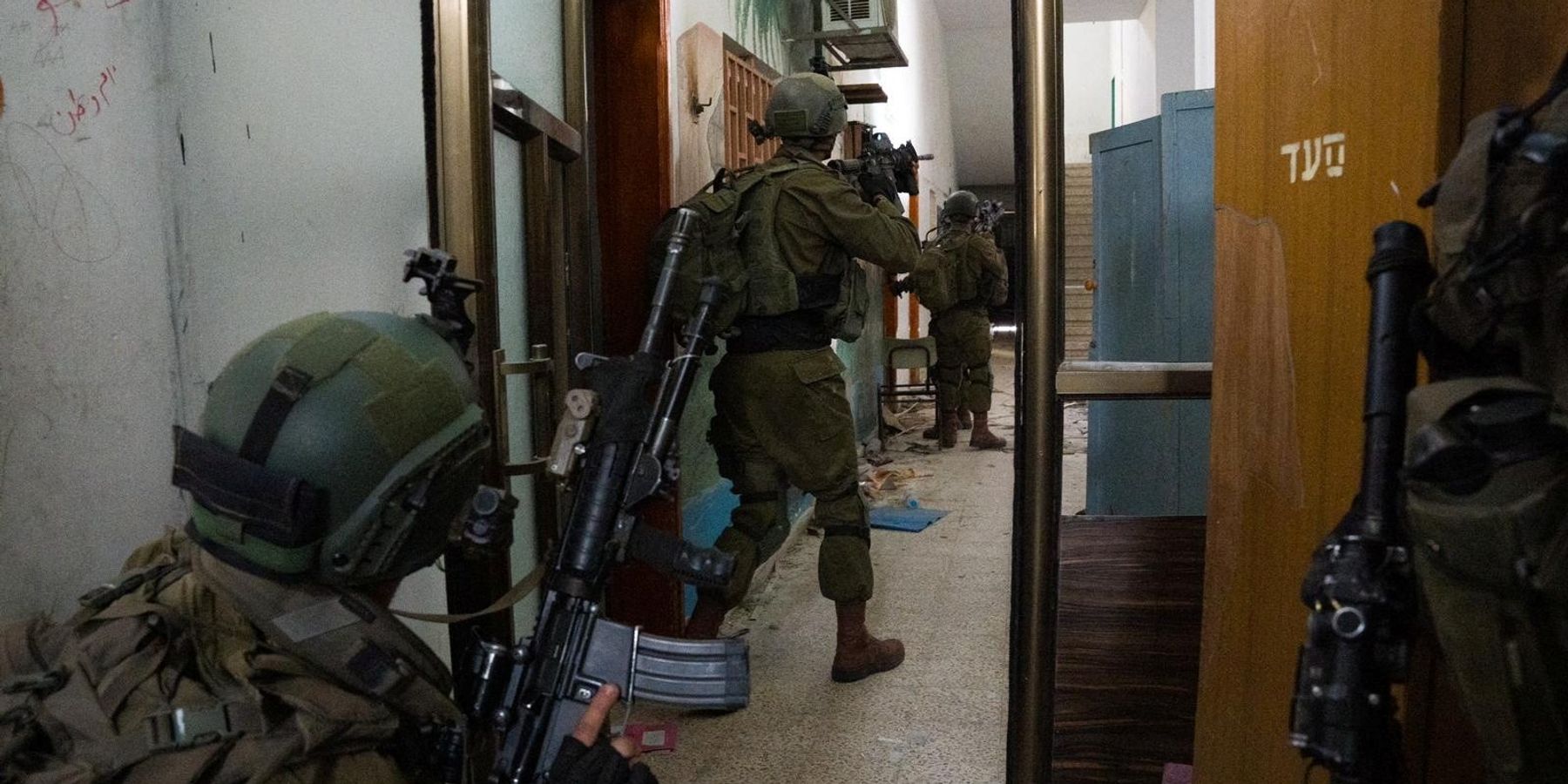The Israeli Defense Forces have been targeting civilian centers and using Palestinian civilians as human shields during its operation in Gaza, according to explosive new reporting from Haaretz.
Ironically, this comes the day after the 75th anniversary of the Geneva Convention, a groundbreaking series of treaties which established international laws around human rights during war time.
The report also arrives after weeks of the Israeli military bombing schools in Gaza used by Palestinians for shelter. In each of the attacks, the IDF has claimed that Hamas was using civilians as human shields. In Haaretz’s new investigation however, Israeli soldiers have been seen using “random Palestinians” as human shields on camera for operations in the Strip. This is based in part on the footage, published by Al Jazeera two months ago, which shows Palestinians being forced into buildings and rooms ahead of soldiers to ensure that IDF are kept out of harm's way.
Video shows the soldiers placing body cameras on the handcuffed detainees and dressing them in military uniforms with protective vests as they are forced to enter tunnels and buildings before the Israeli soldiers, as a way to check for explosives. Further investigation by Haaretz, published on Tuesday, exposes just how widespread this practice may be among the IDF ranks in Gaza. Combat soldiers and commanders alike were interviewed during this investigation.
"Our lives are more important than their lives," soldiers were told, according to Haaretz. “The thinking is that it's better for the Israeli soldiers to remain alive and for the shawishim to be the ones blown up by an explosive device.”
One of the sources interviewed by the paper claimed that the practice of using Palestinians as human shields was well-known, saying “when I saw the report from Al Jazeera, I said: ‘Ah, yes, it’s true.’” They also charged that leadership knew about the practice adding, “it’s done with the knowledge of the brigade commander, at the least.” Another soldier added to the testimony saying, “About five months ago, two Palestinians were brought to us. One was 20 and the other was 16. We were told: ‘Use them, they’re Gazans, use them as human shields.’”
According to sources, minors and the elderly are also used. One soldier said, “There were times when really old people were made to go into houses.”
The list of incidents described in the investigation took place all over Gaza, but were very similar in nature and description, giving credence to the stories. Some soldiers said they felt uneasy about what they were doing, but concerns brought to leadership were met with a wave of the hand. A battalion commander is reported as saying in response to soldiers' questions: “A soldier doesn’t need to take an interest in the laws of war. You need to think about the IDF’s values and act according to the IDF’s values, not the laws of war.”
The released footage has led to increased calls for an official probe. The IDF Spokesperson’s Unit issued a statement saying, “IDF instructions and orders prohibit the use of Gazan civilians caught in the field for military missions that pose a deliberate risk to their lives. The IDF’s instructions and orders on the subject have been made clear to the forces.”
These reports come as Israel is dealing with another alleged human rights violation. It was reported Monday that the IDF admitted to targeting the Taba’een school complex in Gaza City. Gazan civil defense officials claim that over 90 people were killed, including at least 17 women and children. Some of the bodies have yet to be identified due to the level of carnage produced by the strike. The IDF justifies the bombing by claiming that Hamas operatives were using a room inside of the complex’s mosque. This has been disputed however, with the Israeli strike list including the name of a child under 12-years-old.
Annelle Sheline, Research Fellow at the Quincy Institute, said the Haaretz investigation exposes the lie that the IDF is the “most moral army in the world.”
" Media routinely criticize Hamas for using Palestinians as so-called human shields,” she said. “This is not actually accurate, because the use of a human shield involves coercion and the mere presence of Hamas in Gaza does not mean they have coerced Palestinians to inhabit their own homes, schools, and hospitals.”
Comparing IDF actions to that of Hamas, she adds, “In contrast, this report and others demonstrate that the Israeli military routinely uses Palestinians to do life threatening work against their will.This is not only a war crime but also goes against IDF rules.”
Driving the point home, Sheline points out that “The IDF's use of Palestinians as human shields, despite violating both the Geneva Conventions as well as their own rules, demonstrates the depravity of a military organization that still likes to refer to itself as 'the most moral army in the world'."
Principal Deputy Spokesperson for the Department of State, Vedant Patel, responded to concerns about the school attack on Tuesday from a reporter during the daily press briefing, stating that Israel has the moral imperative to minimize the impact on civilians, claiming that concerns are raised when necessary and that deterrents are in place.
















